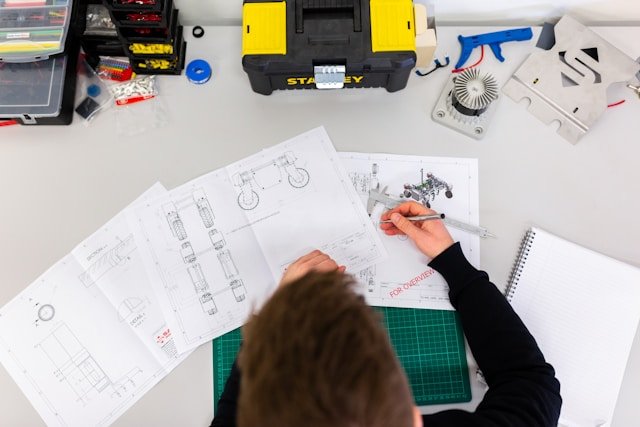The Role of Engineers in Space Missions: Key Skills and Pathways
- Key Engineering Disciplines in Space Missions
- Key Skills for Engineers in Space Missions
- Pathways to a Career in Space Engineering
Engineers play a pivotal role in space missions, contributing to the design, development, testing, and operation of spacecraft and related systems. Their expertise ensures the success and safety of space exploration endeavors. This article delves into the key skills required for engineers in space missions and the pathways to build a career in this dynamic field.
Key Engineering Disciplines in Space Missions
1. Aerospace Engineering
Aerospace engineers are at the forefront of space missions, responsible for the design and development of spacecraft, launch vehicles, and propulsion systems. They work on aerodynamics, structural design, and avionics, ensuring that spacecraft can withstand the harsh conditions of space.
2. Mechanical Engineering
Mechanical engineers focus on the design, analysis, and maintenance of mechanical systems within spacecraft. This includes life support systems, thermal control, and robotic mechanisms. Their work ensures that spacecraft systems operate reliably and efficiently.
3. Electrical Engineering
Electrical engineers develop and maintain the electrical and electronic systems used in space missions. They design power distribution systems, communication networks, and control systems, ensuring that spacecraft can perform their missions effectively.
4. Systems Engineering
Systems engineers oversee the integration of various subsystems within a spacecraft, ensuring that they work together seamlessly. They manage project requirements, conduct risk assessments, and coordinate testing and validation efforts.
Key Skills for Engineers in Space Missions
1. Technical Proficiency
Engineers must have a strong technical foundation in their respective disciplines. This includes proficiency in computer-aided design (CAD) software, simulation tools, and programming languages relevant to their field.
2. Problem-Solving Abilities
Space missions often present complex and unexpected challenges. Engineers must be adept at diagnosing problems, developing innovative solutions, and implementing fixes under pressure.
3. Attention to Detail
Precision is crucial in space missions, where even minor errors can have significant consequences. Engineers must have a keen eye for detail and a commitment to maintaining high standards of accuracy and quality.
4. Teamwork and Collaboration
Space missions are collaborative efforts that involve multidisciplinary teams. Engineers must be able to work effectively with colleagues from different backgrounds, communicate clearly, and contribute to a cohesive team dynamic.
5. Project Management
Engineers often take on project management responsibilities, coordinating tasks, managing timelines, and ensuring that projects stay on track and within budget. Strong organizational and leadership skills are essential.
Pathways to a Career in Space Engineering
1. Educational Background
A bachelor's degree in engineering is the minimum requirement for most engineering roles in space missions. Specializations in aerospace, mechanical, electrical, or systems engineering are particularly relevant. Advanced degrees (master's or PhD) can enhance career prospects and provide opportunities for specialized research.
2. Internships and Co-op Programs
Gaining practical experience through internships and co-op programs is invaluable. Many universities and space agencies offer opportunities for students to work on real-world projects, providing hands-on experience and industry connections.
3. Certifications and Professional Development
Certifications in project management, systems engineering, or specialized software tools can enhance an engineer's qualifications. Continuing education and professional development courses help engineers stay current with technological advancements.
4. Networking and Professional Associations
Joining professional associations such as the American Institute of Aeronautics and Astronautics (AIAA) or the Institute of Electrical and Electronics Engineers (IEEE) provides networking opportunities, access to industry events, and resources for career development.
5. Research and Publications
Engaging in research and publishing findings in academic journals can establish an engineer's expertise and contribute to the advancement of the field. Collaborative research projects with space agencies or private companies can lead to new opportunities.
Conclusion
Engineers are essential to the success of space missions, contributing their expertise to the design, development, and operation of spacecraft. By acquiring the necessary education, skills, and experience, aspiring engineers can build rewarding careers in this exciting and ever-evolving field. Whether through technical proficiency, problem-solving abilities, or collaborative teamwork, engineers play a crucial role in humanity's exploration of space.









